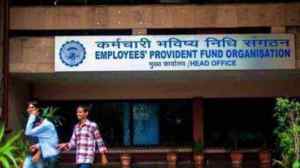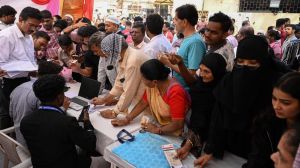Games nations play
Surely Indira Gandhi would not have reacted in the way political party leaders have done to the 8216;8216;Mitrokhin Archives8217;8217;. ...

Surely Indira Gandhi would not have reacted in the way political party leaders have done to the 8216;8216;Mitrokhin Archives8217;8217;. She would have shrugged her shoulders and declared truthfully and appropriately that this kind of influencing of the politics of other countries is a 8216;8216;global phenomenon8217;8217;, as she said about corruption. The Americans, as Jyoti Basu points out, pumped money into various countries to fight the Communist parties in elections 8212; the list included Italy, Japan and France besides India.
Soviet funding of the Communist Party of India was the subject matter of discussion between Jawaharlal Nehru and Nikita Khrushchev, as revealed in the former8217;s published writings. That the Communist Party of India had been penetrated by the Indian Intelligence Bureau and they obtained information about the likely Chinese attack on India in the fall of 1962, in July 1962 is recorded by B.N. Mullick in his book, The Chinese Betrayal. The US and USSR are not the only two countries to put money into India. The Socialist International and German Socialist Party funded some of our trade union leaders during the 1974 railway strike and thereafter. Affluent Islamic countries have been financing not only Muslim parties but other 8216;8216;secular8217;8217; parties which are allegedly friendly to Muslims. All this is common knowledge and there is no need to deny them and adopt a very holy attitude. The US and USSR perhaps also helped some of our regional parties.
It has already been highlighted that intelligence agencies tend to overstate their achievements. There is one instance mentioned in the Mitrokhin papers where this has been amply proved. Prokhor, though not named by Mitrokhin, was identified in 1975 in a US Congressional hearing. He was praised by the American witnesses as the only diplomat who successfully ran rings round the KGB. He was in a honeytrap situation and when he was threatened that if he did not comply with the KGB demands his paramour 8212; a Russian ballet dancer 8212; would be jailed, he was reported to have told his handler to go ahead as he had already got tired of her. So all the information in this publication may not be true but that does not mean that all information in the book is false.
These papers are of value to our intelligence agencies to correct and improve their own operational methodologies. Let there be no illusion that money did not flow into this country and play a role in our politics. This continues to happen and that explains one of the underlying reasons for our political parties to oppose electoral reforms and strict auditing of party accounts. Such flow of foreign money may also be a partial explanation for the continuity of leaderships in many of the parties in the Centre and the states.
This book and similar books from the US and other countries should provide valuable insights into the mechanics of our party system and why in spite of such inflows of foreign money our democratic system has been relatively stable. The same can perhaps be said of Japan, France and Italy. It would appear democracies have some self-corrective immunity mechanisms which help to fight against the infection of foreign money inflow.
To some extent, foreign funding except in the case of those from Islamic countries has yielded place to kickbacks in defence purchases and economic projects involving foreign investment. This, in turn, has led to the proliferation of middle men, both in defence and commercial fields and strengthening of commercial espionage.
It would, therefore, be useful if there are social science studies on the role of foreign money in our politics and what was the extent of their success and what are their limitations. In other countries, there will be considerable investment of effort in this field in the analytical wings of the intelligence agencies. To my knowledge, in India not much attention is paid to such studies.
There is a growing literature of espionage experience in India by foreign operatives. There are at least three books by CIA operatives. The present Russian disclosure is most probably the first of a series that may emerge. A former British chief of MI-5, Stella Remington, has written novels and may perhaps write her autobiography. She started her career in India. We may end up in a situation, as we have done in respect of our history of the last 58 years, that most of the espionage activities in India would be revealed in foreign literature even as our politicians maintain a stodgy silence.
One of the reasons why our politicians are refusing to declassify documents more than 30 years old as is done in other countries may well be that secrets of the type disclosed in the Mitrokhin Archives may tumble out. In a country where there is continuity of leadership in parties over decades the present generation of leaders has a stake in keeping the secrets of previous generations. If they are continuing in the same old ways 8212; which probably they are 8212; they do not want to create any precedents by disclosing state documents more than 30 years old. But such a shortsighted attitude will not prevent our secrets coming out into the open when other countries declassify their papers.
Lastly, one of the heroes of the Mitrokhin Archives is right here in Delhi. The present Russian Ambassador, Vyacheslav Trubnikov, managed the Soviet operations in India both from Delhi and Moscow for a considerable period. If approached, I am sure he would answer: diplomats do not discuss such subjects, the truth of which can neither be confirmed nor denied. The fact that the Government of India had no objection to Ambassador Trubnikov8217;s posting to Delhi would highlight that it is fully aware of this 8216;8216;game of nations8217;8217;, takes a mature and pragmatic view about it and does not bear any grudge over his past activities in the service of his country.
The controversy on this book highlights the wide gap between the world of reality and the make-believe world of our politicians. In this case, too, as happened in the case of our nuclear policy, most of the leaders of parties are obviously not kept informed of the realpolitik practised at the top.
- 01
- 02
- 03
- 04
- 05































